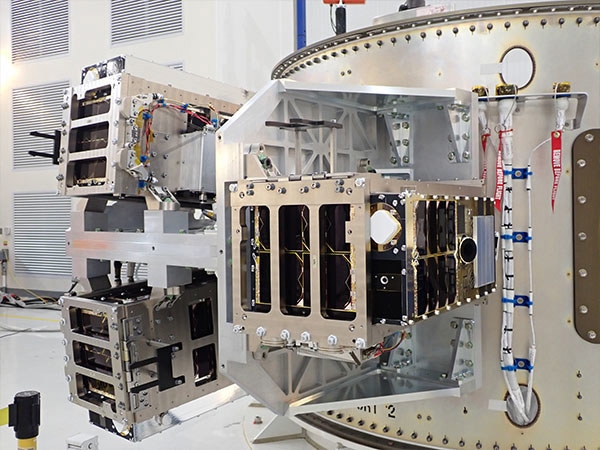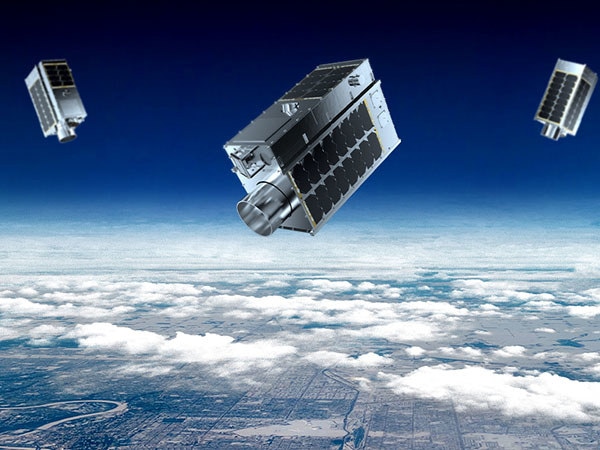GHGSat, the global leader in high-resolution greenhouse gas monitoring from space, has successfully launched into orbit three additional methane satellites, carrying optical sensors built by ABB.
Named Mey-Lin, Gaspard, and Océane, the three satellites travelled on SpaceX's Transporter-7 mission from the Vandenberg Space Force Base in California. They separated from the rocket approximately 63 minutes after liftoff and are now orbiting the Earth, monitoring emissions from space.
With a total of nine satellites, GHGSat has the world’s largest constellation dedicated to greenhouse gas emission monitoring.
In 2022, with six satellites orbiting the earth, GHGSat detected 179 million tons of CO2 emissions, up 25% from 2021. With nine satellites in orbit, the company expects to almost double the number of measurements of emissions from industrial facilities in 2023 compared to 2022.
The sensors map methane emissions and provide invaluable insights to governments and industries looking to meet their emission reduction targets. The sensors can map industrial emissions at a resolution of 100 times higher than comparable technologies currently in operation.
This is the third GHGSat launch with ABB optical sensors on board built by ABB at their state-of-the-art facility in Québec City. In addition to these units, three more are ready to be delivered by ABB – two are dedicated to methane measurement while the third will monitor CO2 emissions.

Image Credit: ABB Measurment & Analytics
Sustainability relies on measurement
Sustainability is without question among the most critical topics in today's world. And without good instruments to monitor and measure changes in the Earth’s atmosphere, we can’t get a clear picture of what is happening, where and at what rate.
Space is the only location that allows emissions to be monitored freely across jurisdictions, enabling unbiased reporting. Measuring different sites from space with the same sensor technology ensures that emissions values are compared consistently. Sensing from space can be especially useful for locations where ground sensors are economically unrealistic or too complex to deploy.
According to the International Energy Agency, methane is responsible for around 30 percent of the rise in global temperatures since the Industrial Revolution, and rapid and sustained reductions in methane emissions are key to limiting near-term global warming and improving air quality.

Photos show Mey-Lin, Gaspard and Océane integrated ahead of Transporter 7 Mission with SpaceX, and in space. Photo credit: Space Flight Laboratory www.utias-sfl.net